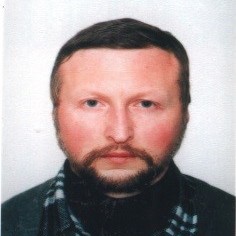
Inzhevatov Igor
Associate professor
The Department of «Software Engineering»
Candidate of technical Sciences
email: inghevatov@kazetu.xn--kz-gmc
from 1990 to 2009 - NGO "HARTRON" programmer, research engineer
from 1997 to 2003 - Institute of Mechanical Engineering Problems, postgraduate course
from 2009 to 2012 - HP AND teacher, system administrator
1979 - 1985 ХПИ - Харьковский Политехнический институт. Автоматическое управление движением.
The HFTI neutron source will allow Ukraine to conduct modern research in various fields of science and technology, develop almost the entire spectrum of radioisotopes for the needs of medicine and industry, as well as solve problems of nuclear energy, extend the life of nuclear power plants.
Publications
The nuclear research facility under development "Neutron Source based on subcritical assembly controlled by a linear electron accelerator" (INR) is designed to produce neutrons and use them in fundamental and applied research, as well as for training and training specialists for the nuclear power industry of Ukraine.